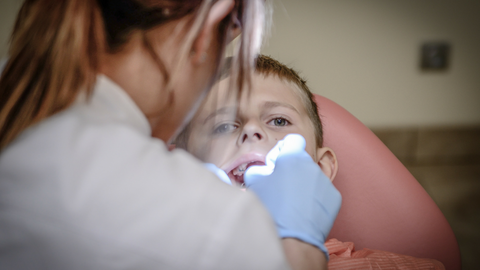Keeping up with good oral health involves more than daily brushing and flossing. Due to scientific progress in recent decades, people’s longevity has dramatically increased. As a result, you need to keep your teeth healthier for a longer period of time. There are a few easy steps you can follow to help you maintain your oral health for a lifetime.
Be aware of your own oral health requirements
Each person has different oral health needs. Talk to your dental care professionals, such as your dentist and dental hygienist, about your specific conditions and learn more about your oral health status and needs. Some health or medical conditions can affect your oral health. For instance, pregnancy, diabetes, heart disease, addiction and cancer treatment can all have an impact on your oral health. Talk to your dentist about your general health, and get his or her advice on how to improve your oral condition. Let your dentist know the medications that you take on a regular basis as they may affect your teeth.
Examine your mouth on a regular basis
It is very important that you become familiar with the appearance of your own mouth and teeth. You can do this through frequent oral self-examination. When you are familiar with your mouth and teeth, you will catch any changes in the early stages, and you will have the chance to discuss these changes with your dentist at that stage. It is much easier and cheaper to seek treatment at that time. Things you should look for are listed below:
- Any spots, cuts, lesions, swellings or growths on your gums, tongue or cheeks
- Any above mentioned changes on the bottom or roof of your mouth, or inside of your lips
- Any signs of chipped or cracked teeth
- Any signs of discoloration or looseness of your teeth
- Any changes in your bite
- Any oral pain
- An oral examination is particularly important to conduct if you are a tobacco user, since you are at an increased risk of developing oral cancer.
Quit tobacco products if you use them
Smokers are at a higher risk of oral cancer than others. Gum disease, bad breath, tooth discoloration, other types of cancer and general health issues are very common in smokers. Quitting tobacco products helps you to improve your overall health, including your oral health, dramatically.
Limit snacking and eat a balanced diet
It is crucial to make the right choices about the snacks and food you eat on a daily basis. It is important to eat a variety of healthy foods. Pay attention to the amount of sugar and starch in each serving. For instance, products like potato chips, dried fruit, cookies, cakes, pies, soft drinks, energy drinks, and gummy candies contain lots of sugar. These products create the most acid in your mouth, which starts the tooth decay process. If you choose to indulge in these snacks, the best thing to do is to floss and brush right after eating. If you are in a situation where you cannot brush immediately, chewing sugarless gum is recommended.
Develop a daily oral care routine and follow it
After you have learned about your oral health from your dental care providers, and based on your oral health needs, you can make an easy-to-follow routine for yourself that suits your schedule. Some people have special conditions, such as pregnancy, which may require special attention to health care instruction. Please make sure you understand your oral health needs and commit to your daily oral health care routine.
Brush and floss daily
Brushing and flossing at least twice a day, after breakfast and before bed, is strongly recommended. If time permits, it is a very good idea to brush and floss after each meal and snack to remove plaque. Plaque combines with sugar and forms acid in your mouth. This acid may lead to tooth decay and periodontal diseases. In addition to brushing and flossing, using an antibacterial mouth rinse can help improve your oral health.
Use fluoride
Every age group can benefit from fluoride use. Not only does fluoride strengthen developing teeth in children, but it also prevents tooth decay in both children and adults. For these reasons, toothpastes and mouth rinses contain fluoride. Talk with your dentist about your fluoride needs. Ask if fluoride supplements or a higher strength prescription fluoride product is necessary for you.
Visit your dentist regularly
Each person needs different oral health care attention. However, the standard recommendation is to visit your dentist twice a year for checkups and cleanings. Ask your dentist and his or her team about the frequency that is best for your oral health needs.
Develop trust with your dentist
Your dentist is on your side. He or she is there for you and your oral health needs. So do not hesitate to ask your dentist all the questions you may have about the proposed treatments and procedures. Know your options before making a decision about a treatment. Learn how the options have differences in how long they last and the costs associated with them. If you have fears or concerns, don’t hesitate to share them with your dentist.

